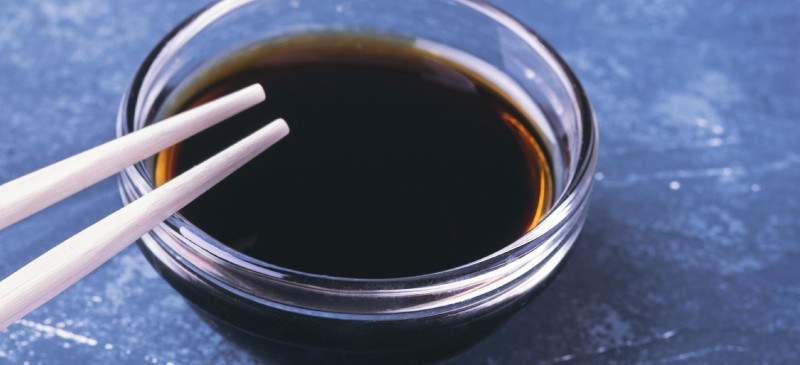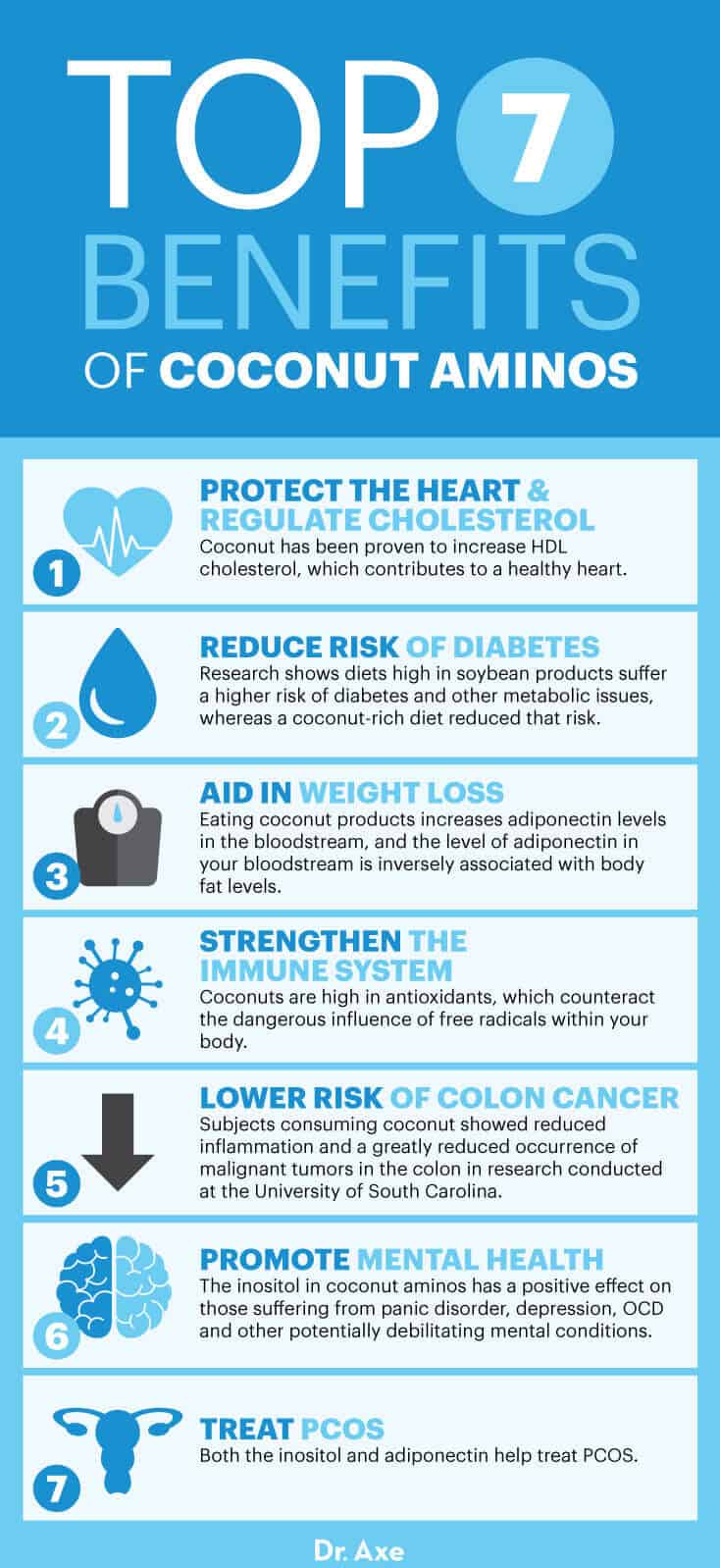This Dr. Axe content is medically reviewed or fact checked to ensure factually accurate information.
With strict editorial sourcing guidelines, we only link to academic research institutions, reputable media sites and, when research is available, medically peer-reviewed studies. Note that the numbers in parentheses (1, 2, etc.) are clickable links to these studies.
The information in our articles is NOT intended to replace a one-on-one relationship with a qualified health care professional and is not intended as medical advice.
This article is based on scientific evidence, written by experts and fact checked by our trained editorial staff. Note that the numbers in parentheses (1, 2, etc.) are clickable links to medically peer-reviewed studies.
Our team includes licensed nutritionists and dietitians, certified health education specialists, as well as certified strength and conditioning specialists, personal trainers and corrective exercise specialists. Our team aims to be not only thorough with its research, but also objective and unbiased.
The information in our articles is NOT intended to replace a one-on-one relationship with a qualified health care professional and is not intended as medical advice.
Coconut Aminos: The Healthy Replacement for Soy Sauce?
November 21, 2023

Do you find yourself in love with Asian food but not thrilled with soy sauce? Welcome to the world of coconut aminos.
Not only are coconut aminos a great substitute for soy sauce, but they’re also a powerful little ingredient on their own. Coconut aminos are gluten-free, non-GMO, certified organic, soy-free, MSG-free, kosher and vegan.
Packed into this unassuming condiment are the nearly endless benefits of the coconut, including protection of the heart and reduction in the risk of certain cancers.
So consider making this a staple in your kitchen cabinet to use as a soy sauce replacement or as a nutritious seasoning sauce.
What Are Coconut Aminos?
Put simply, coconut aminos are a sauce often used to substitute for regular soy sauce in Asian food dishes.
There are only two ingredients to create coconut aminos: organic coconut tree sap and organic sea salt.
The process of creating coconut aminos is actually very simple. Coconut sap is “tapped” from coconut blossoms, the flowering portion of the tree present before coconuts grow. It then goes through a fermentation process and blended with sun-dried, mineral-rich sea salt.
As you probably know, condiments can be really useful to enhance the flavor of foods. Now you’ve got a healthier soy sauce alternative that’s packed with amino acids. So rather than supplementing food with a sodium-rich soy sauce, you can use coconut aminos as a tasty, healthy replacement condiment.
Nutrition Facts
Coconut aminos contain 17 naturally occurring amino acids, have almost a perfectly level pH balance, yield a low glycemic index of only 35 and are said to be a high source of broad-spectrum B vitamins, including inositol.
It also contains 300 percent less sodium than the leading regular soy sauce available. One teaspoon of coconut aminos, depending on the brand, contains about:
- 5 calories
- 1 gram carbohydrates
- 0 grams fat
- 90 milligrams sodium (4 percent Daily Value)
Compare the 90 milligrams of sodium present in this liquid aminos to around 300 milligrams that’s found in a typical soy sauce.
And despite the fact that it comes from coconut sap, coconut aminos actually tastes much more like regular soy sauce than the popular fruit. This makes it super easy to swap out a dark soy sauce for the healthier option.
Health Benefits
1. Protect Your Heart and Regulate Cholesterol
When you consume coconut products (coconut aminos, coconut oil and coconut flour) regularly, your heart feels the difference.
Coconut has been proven to increase HDL cholesterol, which contributes to a healthy heart, according to a longitudinal study published in 2015.
Coconut products also contain antioxidants that have been proven to protect the heart and regulate blood pressure levels. Research published in Pharmaceutical Biology shows that antioxidants present in coconut have cardioprotective effects and help to prevent increases in blood pressure.
2. Reduce Risk of Diabetes
A lot of research has been conducted over the last several years to determine the causes and risks involved in the obesity epidemic in the U.S.
There are many contributing factors, but one 2015 study at the University of California specifically highlights the dangers of a diet rich in soybean products versus coconut products.
This study found that mice following diets high in soybean products suffer a higher risk of diabetes and other metabolic issues, whereas a coconut-rich diet reduced that risk.
It’s important to note that these facts don’t refer to a quick or short-term solution for any problem, but rather remind us that a diet filled with the things that are good for the body, maintained over time, change a lot of the scary things many people fear in their future health.
Choosing a healthier seasoning sauce is just one way to reduce sodium and calorie intake, while still adding flavor to your meals.
3. Aid in Weight Loss
One possible reason coconut has such a powerful impact on diabetes risk may be its role in weight loss.
Have you ever heard of the protein adiponectin? Adiponectin comes exclusively from fatty tissue, secreted into the bloodstream to regulate several metabolic processes, including glucose levels and fatty acid oxidation.
This protein is an interesting one. Research suggests that the level of adiponectin in your bloodstream is inversely associated with body fat levels, meaning that the more of it you have, the lower your body fat content is.
The one exception to this rule is in people with extreme calorie restrictions, such as individuals who suffer from anorexia nervosa or other eating disorders.
The reason this is important when discussing the benefits of coconut aminos and other coconut products is that eating coconut products increases adiponectin levels in the bloodstream.
One study out of Brazil found that introducing coconut products not only regulated blood pressure, lowered cholesterol and decreased glucose numbers, but it also reduced body mass index, body fat, waist circumference and several other obesity-related measurements.
That means coconut aminos can actually help prevent and treat obesity.
4. Strengthen the Immune System
Another exciting benefit of consuming coconut aminos is the protection they offer your immune system. Research published in Experimental and Therapeutic Medicine explains that coconut products are high-antioxidant foods, which counteract the dangerous influence of free radicals within your body.
Why is this a good thing? Reducing oxidation in the body strengthens your body’s defenses against illness and disease. Oxidative stress is associated with a multitude of problems, including high blood pressure, diabetes, heart disease and kidney disease.
In addition to their antioxidant content, coconut products are also a healthy source of saturated fats, which are actually not the horrifying substances that many “experts” tout. One misunderstood benefit of these fats is their ability to boost the immune system.

5. Reduce Risk of Colon Cancer
While high-fat diets have long been regarded as an increased risk factor for colon cancer, recent research suggests a different reality.
Again, coconut products are a good source of saturated fats in the diet. Unlike what you may have heard, saturated fats are essential fatty acids that your body cannot produce on its own.
Saturated fats have several health benefits themselves, including immune health, bone density and toxin protection. They also allow your body to correctly use both forms of unsaturated fats (mono and poly).
With this information in hand, scientists at the University of South Carolina conducted research to determine the influence of coconut products on the risk for colon cancer. Subjects consuming coconut showed reduced inflammation and a greatly reduced occurrence of malignant tumors in the colon.
This was likely due to the ability of saturated fats to maintain “intestinal barrier integrity.” Thus, coconut products may work as cancer-fighting foods, particularly in regard to colon cancer.
6. Promote Mental Health
The coconut tree sap used to create coconut aminos is high in the protein inositol.
Studies indicate that this powerful protein has a positive effect on those suffering from panic disorder, depression, obsessive-compulsive disorder and other potentially debilitating mental conditions.
In fact, inositol had an impact almost equal to that of SSRIs commonly used to treat these disorders — without the laundry list of side effects, some of which are bleeding, sexual dysfunction and suicide risk.
7. Naturally Treat Polycystic Ovarian Syndrome
The significance of coconut products and their effects on adiponectin production may also resolve some insulin resistance issues.
These issues are common in both patients with diabetes and those suffering from other metabolic conditions, such as polycystic ovarian syndrome (PCOS), the number one cause of infertility in the U.S.
Inositol intake not only regulates insulin, like adiponectin, but research concludes that it also treats other conditions of PCOS, such as hyperandrogenism, irregular periods and high blood pressure.
Coconut Aminos vs. Soy Sauce
One thing that coconut aminos and soy sauce have in common is their taste. Soy sauce does have a richer taste, but coconut aminos offers the same salty and savory flavor, but it’s a bit milder and sweeter.
Other than that, the two condiments do not impact your health similarly, so here’s a breakdown of their differences:
Coconut Aminos
- It contains only two ingredients, coconut tree sap and sea salt.
- One teaspoon contains about 90 milligrams of sodium, which is about a third of what’s in soy sauce.
- Aside from the minimal risk of coconut allergy, it doesn’t come with health risks or side effects. In fact, it benefits your health in many ways because of its nutrient content.
- It provides disease-fighting antioxidants and proteins that work to promote mental health. It may also aid weight loss and reduce the risk of diabetes.
Soy Sauce
- It’s the most common phytoestrogen in the Western diet, which mimics biological estrogen and is associated with hormonal cancers, diseases and fertility disruptions.
- Over 90 percent of soy in the U.S. is genetically modified.
- It usually contains gluten, which many people don’t realize.
- Most soy sauce sold in the U.S. is made of a synthetic fermentation process called “acid hydrolyzation” in order to lengthen the product’s shelf life.
- It usually contains monosodium glutamate (MSG), a food additive that can cause health issues in some people (but usually only at very high quantities).
- It’s loaded with sodium, containing around 300 milligrams per teaspoon.
It may also be helpful to note that coconut aminos are not the only soy sauce substitute. You may also want to try tamari, an (almost) gluten-free form of soy sauce that’s always made by traditional fermentation methods.
What about liquid aminos? It should not be confused with coconut aminos, as liquid aminos — like soy sauce — contains soy and is higher in sodium. While coconut aminos is natural fermented, liquid aminos is a highly processed product that relies on chemicals.
Recipes
When using coconut aminos, it’s important to refrigerate the bottle after opening it for the first time.
As mentioned, coconut aminos are a soy sauce substitute, but their taste doesn’t pack quite the salty punch of soy sauce. However, their rich combination of sweet and savory is sure to satisfy.
You can use this healthier condiment to create “fakeouts,” like this Crispy Orange Beef recipe is no exception. It’s 100 percent gluten-free and gives you all the joy of crispy beef with orange sauce that you might get from Chinese takeout … with none of the chemicals or hidden ingredients. Coconut aminos serve as a delectable part of the guilt-free breading.
More in the mood for fish? Check out this Salmon Stir Fry that’s chock-full of omega-3 fatty acids and healthy proteins.
Coconut aminos are also a great dipping sauce for sushi.
Risks and Side Effects
As coconut aminos contain only two ingredients, they’re an extremely safe condiment to consume.
There is no research to suggest overuse of coconut aminos leads to adverse effects. However, it’s possible to be allergic to coconut, although it’s quite rare.
Signs of coconut allergies or food sensitivities include nausea and vomiting, rash, hives and diarrhea.
Not a health side effect, but one note to consider when looking into coconut aminos is its price point. It is a bit more expensive than soy sauce, costing about 50 percent more.
Final Thoughts
- While many “experts” have insisted soy sauce is a healthy condiment, it’s certainly one to avoid.
- Coconut aminos offer a substantive, gluten-free, non-GMO, kosher, vegan and fully organic alternative to soy sauce and tamari, while also packing several additional health benefits like heart health and disease prevention.













